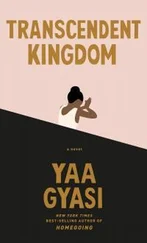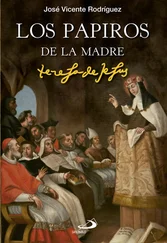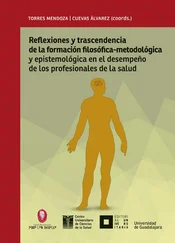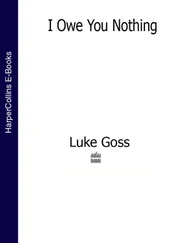“What does the board say?” Yaw asked. He taught Form 1 students, fourteen- and fifteen-year-olds mostly, who had already learned to read and write in English in their lower-level classes. When Yaw had first gotten the post, he had argued with the headmaster that he should be able to teach in the boys’ regional tongues, but the headmaster had laughed at him. Yaw knew it was a foolish hope. There were too many languages to even try.
Yaw watched them. He could always tell which boy would raise his hand first by the way he pushed forward in his seat and moved his eyes from left to right to see if anyone else would challenge his desire to speak first. This time, a very small boy named Peter raised his hand.
“It says, ‘History is Storytelling,’ ” Peter answered. He smiled, the pent-up excitement releasing.
“ ‘History is Storytelling,’ ” Yaw repeated. He walked down the aisles between the rows of seats, making sure to look each boy in the eye. Once he finished walking and stood in the back of the room, where the boys would have to crane their necks in order to see him, he asked, “Who would like to tell the story of how I got my scar?”
The students began to squirm, their limbs growing limp and wobbly. They looked at each other, coughed, looked away.
“Don’t be shy,” Yaw said, smiling now, nodding encouragingly. “Peter?” he asked. The boy, who only seconds before had been so happy to speak, began to plead with his eyes. The first day with a new class was always Yaw’s favorite.
“Mr. Agyekum, sah?” Peter said.
“What story have you heard? About my scar?” Yaw asked, smiling still, hoping, now, to ease some of the child’s growing fear.
Peter cleared his throat and looked at the ground. “They say you were born of fire,” he started. “That this is why you are so smart. Because you were lit by fire.”
“Anyone else?”
Timidly, a boy named Edem raised his hand. “They say your mother was fighting evil spirits from Asamando.”
Then William: “I heard your father was so sad by the Asante loss that he cursed the gods, and the gods took vengeance.”
Another, named Thomas: “I heard you did it to yourself, so that you would have something to talk about on the first day of class.”
All of the boys laughed, and Yaw had to stifle his own amusement. Word of his lesson had gotten around, he knew. The older boys told some of the younger ones what to expect from him.
Still he continued, making his way back to the front of the room to look at his students, the bright boys of the uncertain Gold Coast, learning the white book from a scarred man.
“Whose story is correct?” Yaw asked them. They looked around at the boys who had spoken, as though trying to establish their allegiance by holding a gaze, casting a vote by sending a glance.
Finally, once the murmuring subsided, Peter raised his hand. “Mr. Agyekum, we cannot know which story is correct.” He looked at the rest of the class, slowly understanding. “We cannot know which story is correct because we were not there.”
Yaw nodded. He sat in his chair at the front of the room and looked at all the young men. “This is the problem of history. We cannot know that which we were not there to see and hear and experience for ourselves. We must rely upon the words of others. Those who were there in the olden days, they told stories to the children so that the children would know, so that the children could tell stories to their children. And so on, and so on. But now we come upon the problem of conflicting stories. Kojo Nyarko says that when the warriors came to his village their coats were red, but Kwame Adu says that they were blue. Whose story do we believe, then?”
The boys were silent. They stared at him, waiting.
“We believe the one who has the power. He is the one who gets to write the story. So when you study history, you must always ask yourself, Whose story am I missing? Whose voice was suppressed so that this voice could come forth? Once you have figured that out, you must find that story too. From there, you begin to get a clearer, yet still imperfect, picture.”
The room was still. The birds on the ledge were still waiting for their food to come, still crying for their mother. Yaw gave the boys some time to think about what he had said, to respond, but when no one did, he continued. “Let us open our textbooks to page—”
One of the students was coughing. Yaw looked up to see William with his hand raised. He nodded at the boy to speak.
“But, Mr. Agyekum, sah, you still have not told us the story of how you got your scar.”
Yaw could feel all the boys directing their gazes toward him, but kept his head down. He resisted the urge to put his hand up to the left side of his face, feel the raised and leathery skin there with its many ripples and lines that, when he was still just a child, reminded Yaw of a map. He had wanted that map to lead him out of Edweso, and in some ways it had. His village could hardly look at him and had collected money to send him to school so he could learn, but also, Yaw suspected, so they would not have to be reminded of their shame. In other ways, the map of Yaw’s scarred skin had led him nowhere. He had not married. He would not lead. Edweso had come with him.
Yaw did not touch his scar. Instead, he set his book down carefully and reminded himself to smile. He said, “I was only a baby. All I know is what I’ve heard.”
—
What he’d heard: That the Crazy Woman of Edweso, the wanderer, his mother, Akua, had set the hut on fire while he, still a baby, and his sisters slept. That his father, Asamoah, the Crippled Man, had only been able to save one, the son. That Crippled Man had kept Crazy Woman from burning. That Crazy Woman and Crippled Man had been exiled to the outskirts of town. That the town had collected money to send the scarred son to school, when he was still so young he had yet to forget the taste of his mother’s breast. That Crippled Man had died while the scarred son was still in school. That Crazy Woman lived on.
Yaw had not been to Edweso since the day he left for school. For many years, his mother sent letters, each written in the hand of whomever she’d convinced to write for her that day. The letters begged Yaw to come see her, but he never responded, and so, eventually, she stopped. When he was still in school, Yaw spent his leaves with Edward’s family in Oseim. They took him in as though he were one of their own, and Yaw loved them as though he belonged to them. An unapologetic, unquestioning love like that of the stray dog that follows the man home from work every evening, happy, simply, to be allowed to walk nearby. It was in Oseim that Yaw had met the first girl he would ever be interested in. In school, he had loved the Romantic poets best, and he had spent nights in Oseim copying Wordsworth and Blake onto tree leaves that he scattered around the spot near the river where she went to fetch water.
He spent a whole week doing this, knowing that the words of white Englishmen would mean nothing to her, that she could not read them. Knowing that she would have to come to him to find out what the leaves said. He would think about it every night. The girl bringing her bundle of leaves to him so that he might recite “A Dream” or “A Night Thought” to her.
Instead, she went to Edward. It was Edward who read the lines to her, and afterward, it was Edward who told her that the leaves were Yaw’s doing.
“He likes you, you know,” Edward said. “Maybe he will one day ask you to marry him.”
But the girl shook her head, clucked her tongue in distaste. “If I marry him, my children will be ugly,” she declared.
That night, lying next to Edward in his room, Yaw listened as his best friend told him that he had explained to the girl that you could not inherit a scar.
Читать дальше
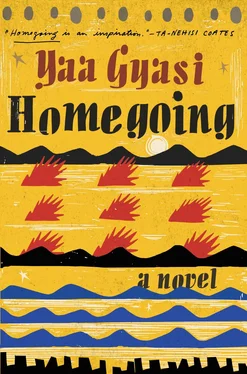
![Ally Carter - [Gallagher Girls 01] I'd Tell You I Love You But Then I'd Have to Kill You](/books/262179/ally-carter-gallagher-girls-01-i-d-tell-you-i-lo-thumb.webp)

